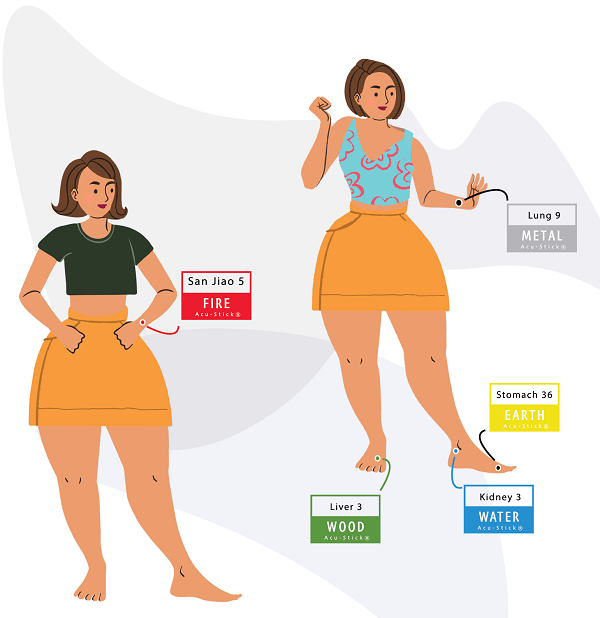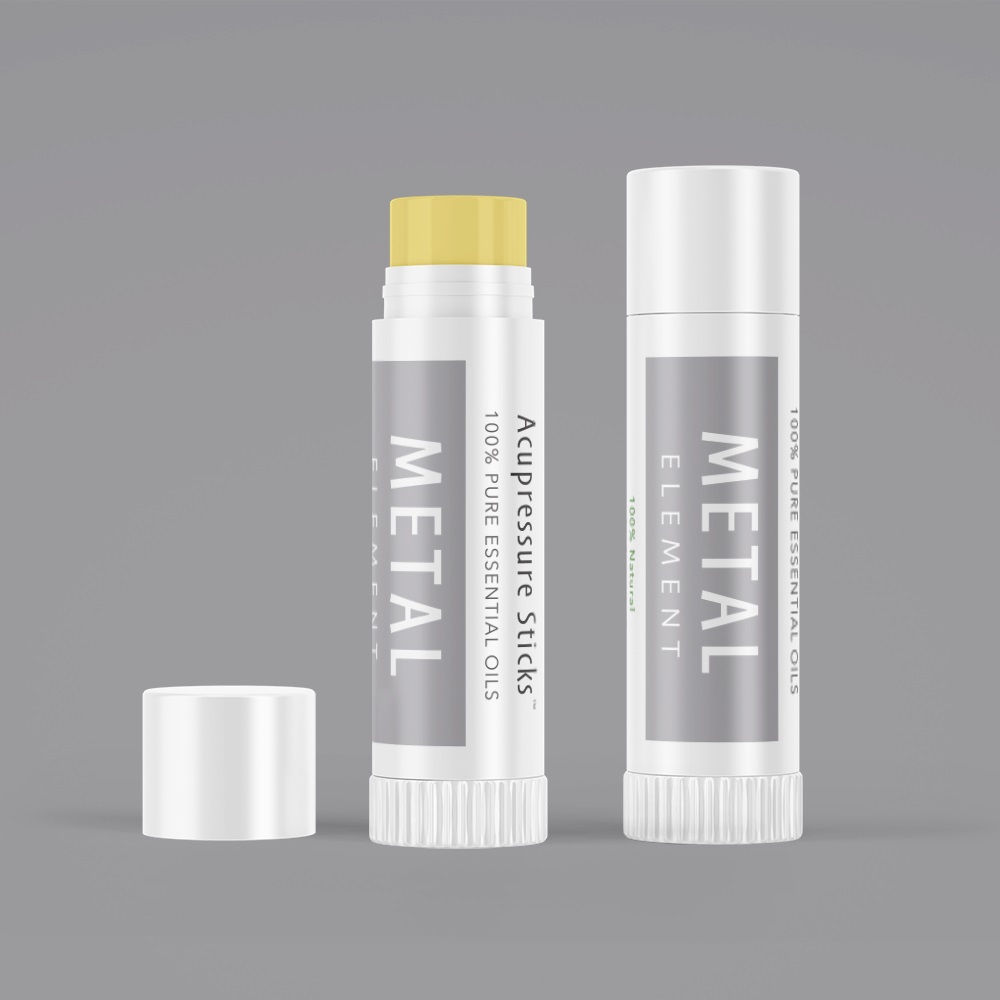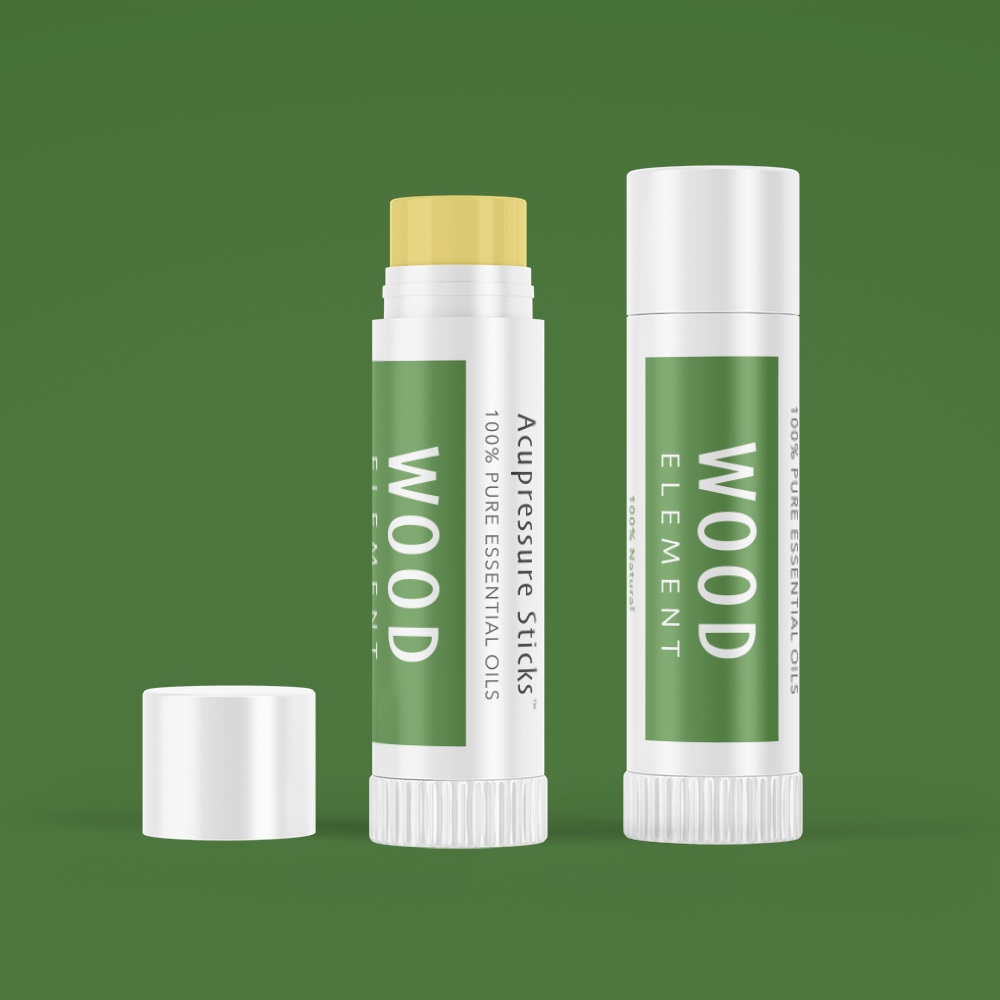Edema
Edema Causes in Chinese Medicine
Chinese medicine is an effective holistic therapy which naturally reduces edema in the body and addresses the actual 'root' cause of edema. Edema in itself is a symptom of Organ System deficiency and is not considered an actual disease according to traditional Chinese medicine. In Chinese medicine, edema has many different patterns and root disorders depending on how the edema manifests itself in the body, as there are several Organ Systems in Chinese medicine that are responsible for managing fluid. This pattern distinction allows for a more targeted natural treatment plan that addresses the underlying causes of edema, rather than simply relying on diuretic herbs to reduce fluids. For best outcomes using self-care, apply associated Aroma Acu-Sticks® to acu-points, topical remedies, and good lifestyle practices.
![]()

Aroma Acu-therapy™ for Edema
Kidney 3
Apply the Water Element Aroma Acu-Stick® to activate Acupressure Point KI 3
Why? Acu-point Kidney 3 is the Source Point of the Kidney energetic organ system that, much like a western medical view, drains fluids via urination according to Traditional Chinese Medicine.
Apply the Earth Element Aroma Acu-Stick® to activate Acupressure Point ST 36
Why? Acu-point Stomach 36 rectifies the Spleen which is in charge of the transportation and transformation of foods and fluids in Chinese medicine.
Apply the Metal Element Aroma Acu-Stick® to activate Acupressure Point LU 9
Why? Acu-point Lung 9 is the Source Point of the Lung energetic organ system which is closely associated with the Kidney of Chinese medicine.
Apply the Wood Element Aroma Acu-Stick® to activate Acupressure Point LV 3
Why? Acu-point Liver 3 is the energy source point for the Liver energetic organ system and the Liver regulates the flow of Qi throughout the body necessary avoiding lymph congestion in the body.
Apply the Fire Element Aroma Acu-Stick® to activate Acupressure Point San Jiao 5
Why? The SJ, or Triple Burner, helps the body to regulate metabolic functions in the body.
Related Articles:
Symptom Patterns of Edema in Chinese Medicine
There is no single "edema protocol" according to Traditional Chinese Medicine (TCM); rather, edema is addressed differently depending on the symptoms and location related to the edema. It is common for more than one pattern of imbalance to be present at one time.
Kidney Deficiency and Edema
The most common type of edema is related to Kidney Deficiency. The Kidney function in Chinese medicine is central in fluid management of the body as the Kidney is the “official in charge of the waterways”. Edema based in Kidney Deficiency will often manifest with ankle and knee swelling, soreness in the lower back, general fatigue, and coldness in the body. The Kidney energetic system is paired with the Urinary Bladder which is also re-enforced when addressing Kidney Deficiency with tonic herbs. Chinese herbal Kidney Qi Tonics work to reverse the root deficiencies that cause Kidney Deficient type edema. Right foot edema points to Kidney Yang Qi deficiency and left foot edema suggests Kidney Yin deficiency.
![]()
Kidney-Spleen Deficiency Pattern Edema
The Spleen is the primary energetic organ system of Chinese medicine responsible for the balance of fluids in the body as the Spleen is the "official in charge of the transformation and transportation of foods and fluids" . Chronic Spleen Qi Deficiency will result in Internal Dampness. Most cases of edema will contain an element of Spleen Qi Deficiency and Kidney insufficiency. Weeping edema, abdominal edema, edema associated with indicate Spleen Qi Deficiency-type edema. Advanced conditions can present as weeping edema.
![]()
Kidney-Heart Deficiency and Edema
The Heart is central in circulating fluids throughout the body, and Heart Qi Deficiency will often manifest as hand and facial edema in Chinese medicine. Heart Qi Deficiency could be accompanied by palpitations or a sensation of the heart. Heart Qi Deficiency also plays a pivotal role in pulmonary edema. Additionally, the Heart and Kidney energetic systems are seen as Fire Element and Water Element in Chinese medicine and are intimately connected; Fire must be present to control Water, and Water must be present to control Fire, and these Elements must be balanced for either system to maintain health. Heart symptoms would include emotional upset and insomnia, or sleep disturbances.
![]()
Lung-Kidney Deficiency and Edema
In Chinese medicine, edema can occur due to exposure to external pathogens. The body’s ability to fight off external pathogens with a healthy immune response begins with the Lung function which is closely related to the Wei Qi and is the Organ closes to the surface and external influences according to Chinese medicine. The Lung is the most external Yin organ system, and is typically the first to be effected by viral infections. Acute edema related chronic colds, sinus infections, or bronchitis can be addressed would indicate Lung related edema. The Lung-Kidney energetic systems are interrelated closely according to TCM as the Kidney 'grasps' the breath.
![]()
Lymph Edema and Chinese Medicine
The lymphatic system is an intricate network of channels in the body that carries lymph fluid, a colorless fluid containing white blood cells that fight infection. Lymph fluids also transport fluids and metabolic waste out of the tissues. When the lymphatic system is overloaded by waste and poisons in the tissues, a block to the natural flow of lymph fluid can occur. Edema due to an insufficiency of the lymphatic system is typically marked with swelling of the extremities.
If left unchecked, the stagnation of the lymph system can escalate to infections, and are associated with the development of cancer. Lymph edema is also common in cancer patients who have had lymph nodes removed, or who have had radiation treatments, especially breast cancer. Herbs that enhance the lymphatic system promote detoxification and can be used periodically to insure the smooth flow of lymph fluid through the lymphatic system.
Chinese Medicine and Edema
Edema (oedema - English) is when an abnormally large fluid volume circulates in the circulatory system or accumulates in interstitial spaces, or tissues between the body's cells. The circulatory system transports fluid within the body via its network of blood vessels; this fluid, which contains oxygen and nutrients needed by the cells, moves from the walls of the blood vessels into the body's tissues.
A healthy body normally maintains a balance of fluid in tissues and vessels by ensuring that the same amount of water entering the tissue also leaves it. Interstitial fluid circulates throughout the body transporting nutrients and oxygen; the fluids move back to the heart after the nutrients have been exhausted through blood vessels and the lymphatic system.
There are many types of edema; generally edema is when either too much fluid moves from the blood vessels into the tissues, or not enough fluid moves from the tissues back into the blood vessels. This fluid imbalance can cause mild to severe swelling in one or more parts of the body.
![]()
Western Medicine vs. Chinese Medicine View of Edema
Western medicine looks at edema differently than Chinese medicine as simply an abnormal accumulation of fluid beneath the skin or in one or more cavities of the body. Generally, the amount of interstitial fluid is determined by homeostasis, and increased secretion of fluid in to the interstitial spaces, or impaired removal of this fluid may cause edema. Six factors can contribute to the formation of edema:
- Increased hydrostatic pressure.
- Reduced oncotic pressure within blood vessels.
- Increased tissue oncotic pressure.
- Increased blood vessel wall permeability e.g. inflammation.
- Obstruction of fluid clearance via the lymphatic system.
- Changes in the water retaining properties of the tissues themselves. Raised hydrostatic pressure often reflects retention of water and sodium by the kidneys.
Hydrostatic pressure within blood vessels tends to cause water to filter out into the tissue. This leads to a difference in protein concentration between blood plasma and tissue. As a result the oncotic pressure of the higher level of protein in the plasma tends to suck water back into the blood vessels from the tissue. Most water leakage occurs in capillaries or post capillary venules, which have a semi-permeable membrane wall that allows water to pass more freely than protein. If the gaps between the cells of the vessel wall open up then permeability to water is increased first, but as the gaps increase in size permeability to protein also increases with a fall in reflection coefficient.
Changes in the variables can contribute to the formation of edema either by an increase in hydrostatic pressure within the blood vessel, a decrease in the oncotic pressure within the blood vessel or an increase in vessel wall permeability. The latter has two effects. It allows water to flow more freely and it reduces the oncotic pressure difference by allowing protein to leave the vessel more easily. A rise in hydrostatic pressure occurs in cardiac failure. A fall in osmotic pressure occurs in nephritic syndrome and liver failure. It is commonly thought that these facts explain the occurrence of edema in these conditions.
Causes of edema which are generalized to the whole body can cause edema in multiple organs and peripherally. For example, severe heart failure can cause pulmonary edema, pleural effusions, ascites and peripheral edema. Although a low plasma oncotic pressure is widely cited for the edema of nephritic syndrome, most physicians note that the edema may occur before there is any significant protein in the urine (proteinuria) or fall in plasma protein level.
Fortunately there is another explanation available. Most forms of nephritic syndrome are due to biochemical and structural changes in the basement membrane of capillaries in the kidney glomerulae, and these changes occur, if to a lesser degree, in the vessels of most other tissues of the body. Thus the resulting increase in permeability that leads to protein in the urine can explain the edema if all other vessels are more permeable as well. Edema will occur in specific organs as part of inflammations, tendonitis or pancreatitis, for instance. Certain organs develop edema through tissue specific mechanisms.
The movement of water in the body involves all of the organs; starting in the Stomach and ending in the Urinary Bladder. Water is moved and controlled by an invisible organ in Chinese Medicine called the San Jiao or Triple Heater or Burner. It is the San Jiao's responsibility to move water throughout the body and any disruption of this can lead to edema. When the San Jiao is working properly water moves freely between organs and freely in and out of the cells. Also, edema in Chinese Medicine comes in two varieties; Qi Edema and Water Edema.
Types of edema well treated with Chinese herbs:
- Lymph edema
- Ankle edema
- Leg edema
- Arm edema
- Facial edema
![]()
Zhou, H., Sun, G., Kong, L., Du, Y., Shen, F., Wang, S., … Zeng, X. (2014). Acupuncture and moxibustion reduces neuronal edema in Alzheimer's disease.. Neural regeneration research, 9(9), 968–972. doi:10.4103/1673-5374.133148
Yu, N., Wang, Z., Chen, Y., Yang, J., Lu, X., Guo, Y., … Xu, Z. (2017). The ameliorative effect of bloodletting puncture at hand twelve Jing-well points on cerebral edema induced by permanent middle cerebral ischemia via protecting the tight junctions of the blood-brain barrier. BMC complementary and alternative medicine, 17(1), 470. doi:10.1186/s12906-017-1979-6
Cheng, C. Y., & Lee, Y. C. (2016). Anti-Inflammatory Effects of Traditional Chinese Medicines against Ischemic Injury in In Vivo Models of Cerebral Ischemia. Evidence-based complementary and alternative medicine : eCAM, 2016, 5739434. doi:10.1155/2016/5739434
Wang, X. Q., Wang, L., Tu, Y. C., & Zhang, Y. C. (2018). Traditional Chinese Medicine for Refractory Nephrotic Syndrome: Strategies and Promising Treatments. Evidence-based complementary and alternative medicine : eCAM, 2018, 8746349. doi:10.1155/2018/8746349
Lee, G., Cho, J. H., Son, C. G., & Lee, N. (2019). Successful treatment of refractory edema with traditional herbal medicine: A case report. Medicine, 98(41), e17551. doi:10.1097/MD.0000000000017551
This information has not been evaluated by the Food and Drug Administration. This information is not intended to diagnose, treat, cure, or prevent any disease.





